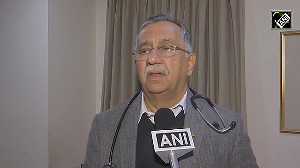No new capacity addition is planned for 2018 and capital expenditure plans are on hold

Indian companies raised 40 per cent less in foreign currency loans this year till date at $13.5 billion against $23.6 billion in the same period of 2016.
No new capacity addition is planned for 2018 and capital expenditure plans are on hold.
Corporate fund-raising abroad will remain muted as many companies struggle with high debts and plan to sell assets.
“Barring re-financing of old loans by top-rated companies like Reliance Industries, Indian companies were not present in the foreign currency loan market this year,” said a banker asking not to be named.
At present, Tata Motors is in the market with a pound-denominated loan to raise $840 million and the proceeds will be used to retire old loans.
Bankers said India was witnessing a declining trend since 2014 in both the volume and number of foreign currency loans.
In 2017, corporate India signed only 41 deals, down 37 per cent from 65 in 2016. Over the same period, fund-raising from the Asia-Pacific region, excluding Japan, was down 15 per cent.
Corporate chiefs say 2017 was a watershed with some large companies going bankrupt or selling assets to remain out of bankruptcy court.
Demand was also weak due to demonetisation and the teething problems of the goods and services tax that was rolled out in July.
“Defaults by a few top Indian companies on bonds overseas further affected investor sentiment.
Despite lower rates in the foreign currency market this year, corporate India was busy trying to keep its house in order,” said the chief financial officer of a large power company.
Bankers said apart from Reliance Industries, metal-to-oil major Vedanta had raised funds from the international market.
Pharmaceutical company Intas was in the market to raise $1 billion to fund the acquisition of Teva’s assets in the UK and Ireland while Mu Sigma also raised $394 million.
With an uptick in factory output, companies will first use their spare capacity and then expand in the coming months.
Analysts said there was a need for private investment to pick up because the momentum was now being maintained only by the central government.
Bankers and corporate bosses expect companies’ capital expenditure will revive in 2019-20 once the general elections are over.
“Stressed corporates could delay the investment recovery by another two to three years, given their low capacity utilisation of 40 per cent and considering the slow growth of earnings of public sector undertakings,” ratings agency Indian Ratings said.
Photograph: Yuriko Nakao/Reuters












 © 2025 Rediff.com -
© 2025 Rediff.com -